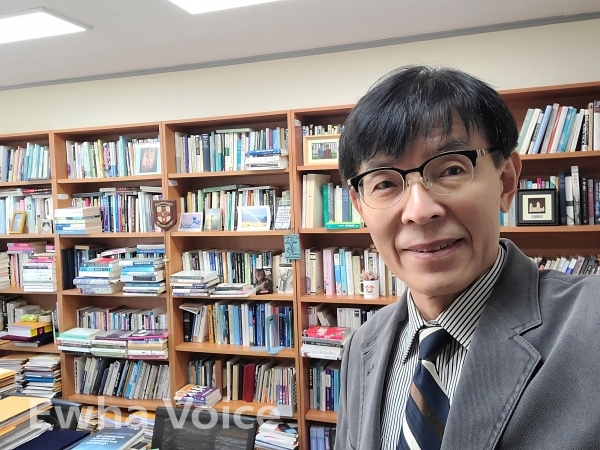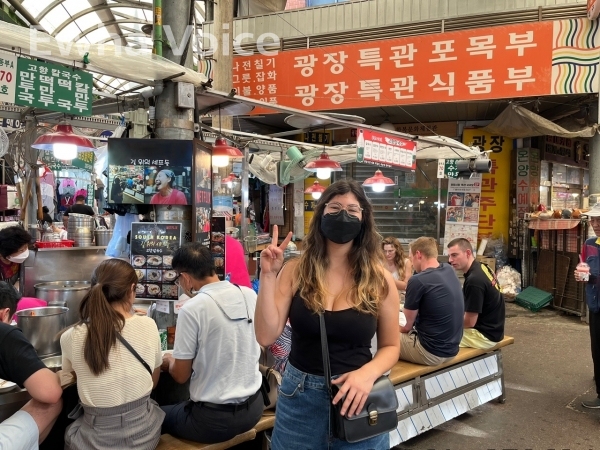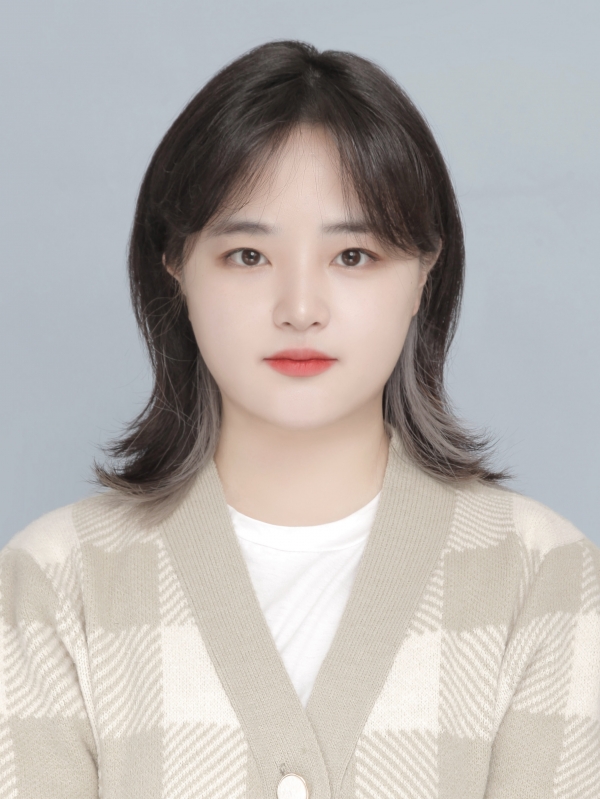What is gukppong?
Gukppong is a compound of the Korean word for a nation (guk) and the drug methamphetamine (known in Korean as philopon), which forms a Korean expression for showing excessive national pride. A salient example of gukppong is Do You Know Club, which is a sarcastic expression criticizing some Korean entertainment shows asking people from other countries whether they know popular Korean celebrities or cultures. Do You Know Club includes Dokdo, kimchi, BTS, and Son Heung-min.
A further example of gukppong can be found in a content that examines reactions to Korean culture by people from other countries, especially white people from Western countries, which is in line with the Do You Know Club. Indeed, it is not difficult to find content on YouTube in which non-Koreans experience Korean food or culture, show positive reactions to it, and express admiration toward the country. This issue sparked controversy in 2020 when it was revealed that the people from other countries who appeared in such videos were allegedly paid to react positively as intended by channel producers.
Accordingly, the public has become increasingly critical of gukppong content. It was found that much of it intentionally directed or even manipulated positive responses to Korean culture and raised the question as to why such content is still being produced with many people being enthusiastic about it. On the other hand, some have suggested that gukppong should not simply be viewed critically because Koreans deserve to have national pride in the nation’s rapid economic and cultural development. Looking at both positive and negative aspects coexisting, Ewha Voice explored gukppong in depth with experts in various fields.

Non-Koreans propagating Korean culture: Gain or loss?
With a simple tap, individuals can now have access to a wide range of Korean media content consisting of people from other countries either residing in Korea or introducing Korean culture.
When browsing the screen, the video most typically found on any kind of platform is titled: “Foreigners trying Korean food!” Although these types of content have been created for years, the number of views still records millions and even tens of millions.
To provide expertise and an objective point of view on this issue, Ewha Voice interviewed Francis Jae-ryong Song, professor of sociology and director of the Institute for Religion and Civic Culture at Kyung Hee University.
Professor Song explained this tendency to the concept of collective cultural disposition, an inclination in which people behave similarly to others’ behavior, not just according to their own will. He shared his perspective on this concept, pointing out the major characteristic of collective cultural disposition in Korea which is distinctive ostentation, relating to exclusive egotism.
He added that the key characteristic of the concept–distinctive ostentation–has people discriminately show themselves off as a group.
The inclination can be applied in a national context. A group of people from the same country may have a strong desire to be acknowledged by relatively developed countries that are perceived as superior to them–mostly Western countries.
Generally speaking, the Western society in one’s subconscious is envisioned to be superior to ones' country in the aspects of economy, culture, and race. For this reason, the Western society admitting our culture, economy, and art makes us feel valued and special.
An argument was brought up that since South Korea has accomplished economic development faster than any other country, Koreans are still eager to be recognized by Western countries. However, Song replied that compared to Japan, which was the first non-western country to enter into economic modernization, Koreans have a much stronger desire to be recognized by Western society.
Song explained that one of the causes for this could be Koreans feeling inferior to other countries for achieving modernization at a relatively later point around the end of the 19th and the beginning of the 20th century. However, Song once again emphasized the presence of collective cultural disposition as a major factor.
As one of the most representative examples to underpin this phenomenon, Song quoted the field of education in Korea, having a reputation of Korean students receiving excessive private education from academic institutions even before entering elementary school.
“Koreans’ desire for distinctive ostentation and recognition in their promising future by investing in education is unprecedented globally,” he said. “Although this can be seen negatively, we cannot neglect the fact that it was a primary contributor to Korea’s rapid economic and societal growth.”
When relating this phenomenon to the social structure and background of Korea, Song stressed the cultural impact of Confucianism, which also influenced the habits of the heart of Koreans. Confucian virtues were an ideal and valuable notion and the cultural habitus, which has been entailed along with the concept, had a strong preoccupation of rising in the world and gaining fame. Song thinks this still remains a cultural disposition or cultural convention in modern Korean society.
Along with gukppong, Song views hallyu, the increase in global popularity of Korean culture, as several factors derived from the complicatedly entangled globalization, not just entirely due to the acknowledgement from others. He exemplified the economically modernized cultural style of Korea being successfully proliferated in the era of globalization as one of the factors.
When it comes to the longing for getting acknowledgement from others, Song explained that it appears much stronger in Korean society. He also stressed that this leads to individuals feeling strong relative deprivation, explaining why Korea has recorded the highest suicide rate for the last 20 years.
So, where does that leave gukppong and the issue of Koreans being overly captivated by such content? Song commented that introspective and critical perspectives are needed for balanced development.
Korean culture has been receiving so much attention from all over the world that Koreans now have considerable pride in it. With regard to this tendency, Song remarked that the more Koreans focus on matters of cultural pride, the more it indicates that Koreans have been seeking others’ recognition.
“What we need at this point is to accept our own culture regardless of others’ view,” Song said. “Whether or not our cultural characteristics are more special than those of Western society or developed countries, we should learn how to naturally accept our self-identification.”
In short, Song suggested altering into a phase in which we transcend the obsession and ostentation towards what is ours.

Perspective of international students: What do they really think?
Gukppong content not only targets Koreans who want to feel proud of themselves but also aims at people from other countries who want to know more about Korea. When asked if international students studying abroad in Korea had any experience watching such gukppong content, most students said they had seen videos on YouTube or television. Many responded positively, but they pointed out the content from a different perspective than Koreans.
“I think it is nice softball content,” said Olivia Radlmayr, a student majoring in Law at the University of Konstanz, Germany. “It is normal to enjoy watching people from different countries experience your own nation’s culture and hopefully have a positive reaction. Moreover, it is always interesting to have an outside perspective.”
Deepti Aggarwal from India, currently studying for her Master’s degree in international studies specialization in international trade, also shared her insight. According to Aggarwal, as gukppong content producers usually depict Korea in a positive light, it often diverts attention from the dark true reality of the society such as sluggish growth and unemployment.
“One should focus on the middle path rather than extremities,” Aggarwal said. “Self- awareness and healthy self-criticism usually take place at self-praising and self-satisfaction. There should always be a distinction between healthy patriotism and excessive nationalism.”
Radlmayr pointed out that this type of content should focus on food or pop culture, not history because the interviewees from different countries usually have no qualifications in the field.
Dian Susmarini, a Ph.D. nursing student from Indonesia, showed a similar opinion. The content has to be light and entertaining as its main purpose is entertainment, and it succeeds in this aspect. On the other hand, Susmarini suggested that if Koreans do want to know non-Koreans’ understanding of Korea, an opinion, instead of a simple trivia question, should be asked.
“This can be seen as a soft promotion about Korea targeting international audiences,” Susmarini said. “All eyes are on Seoul, South Korea, now, especially after the recent appearance of BTS in the U.S. music program. I think Koreans are curious about the opinions of non-Koreans about their country. The spontaneous reaction of people from other countries to Korean culture in such content answers Koreans’ curiosity yet entertaining at the same time. I think this explains the popularity of gukppong content among Korean people.”
Radlmayr shared similar opinions, mentioning that the content might be popular in Korea as the country did not have as much soft power and was relatively unknown abroad in the past. Now that Korean culture has gained a certain popularity, Koreans would be delighted to watch people abroad enjoy Korean culture.
Among Koreans, there is criticism that such gukppong content is mainly focused on the reactions of white people from Western Countries.
Radlmayr saw it differently. She believed it has to do with the fact that people want to see other people from countries that they like or admire, which often happens to be Europe or the United States.
“Somewhere still in our mind, it is imprinted that white means developed more intelligent and beautiful,” Aggarwal said. “Anyone who gets appreciated by such so-called developed country would try to interact with them more. As a result, it becomes a means to increase the reputation and status in the world order.”
Susmarini and Aggarwal both agreed that a shift should be made. According to Dian, most K-pop fans had no chance to visit Korea due to the pandemic, but they know so much about the country. She continued that Koreans will be amazed how the young generation, especially from Asia, knows a lot about Korea. Deepti also mentioned gukppong content creators shifting their attention toward other countries.


New approach to the content featuring global cast: BDR Universe
A new type of content that the public responds to differently is being produced. BDR Universe, Munhwa Broadcasting Corporation (MBC) original programming consisting of diverse series, features people from other countries who are fluent in Korean or residing in Korea. Uploading videos every week on its YouTube channel, BDR Universe mainly focuses on the series called BDR Laboratory. This program stars non-Koreans and Korean experts in different fields sharing their insights on different topics every week. For this reason, BDR Laboratory has been praised for its unique way of delivering cultures around the world.
Lee Yena, the producer of BDR Universe, shared the stories and her thoughts on BDR Universe.
BDR Universe commenced with the series called BDR Oisachin, videos reviewing culture and products around the world through the eyes of non-Koreans. After the outbreak of COVID-19 and with the increased attention towards overseas news, Lee planned a more profound program.
Breaking the mold of videos portraying people from other countries, Lee replied that the most distinctive aspect of the channel is being able to introduce the country’s characteristics well.
For the first episode of the BDR Laboratory series, Lee chose to cover the punishment of sexual crimes around the world in relation to the discharge of a notorious Korean criminal, Cho Doo-soon.
Lee revealed that the episode not only shared opinions of people from different nations, but also delivered the legal, societal, and cultural similarities and discrepancies in the ways of handling sexual assault between countries.
After releasing the first episode, BDR Laboratory has continued producing wide-ranging content starting with critical issues such as the upper class culture and criminal organizations, along with slightly lighter topics like eating and bathroom etiquette.
What Lee thinks makes BDR Laboratory special are honesty, a foreign emcee, and harmony between the guests. She specifically emphasized the starring of the foreign emcee who is highly involved in Korean culture and is able to understand the foreign guests’ position.
Lee also shared how the production crew of BDR Universe prevents any misunderstandings when delivering information.
“The utmost priority is active communication with foreign guests,” she said. “We try to avoid one’s opinion being reflected as a mainstream opinion, also a mainstream opinion being shown as an individual’s stance.”
Another point was the subtitles. No matter the fluency in Korean of the guests, there can always be chances of the miscommunication caused by vocabulary choices or nuance.
When it comes to gukppong content, Lee commented that she does not view them in a seriously negative way as long as the creators do not heavily exaggerate or lie about the information they provide.
Throughout the years of creating videos with non-Koreans, what Lee has reckoned is that due to its history, Korean culture did not have much chance of exposure to surrounding countries. She further added that some parts of Korean culture have indigenous and incomparable traits. Lee perceived these as the reasons Koreans have stronger pride in their culture, resulting in gukppong content. Her point is that Koreans are genuinely doing a great job, and she hopes that they could enjoy their current status at most.
Lee also remarked that her biggest goal is producing content that the viewers can have fun while watching.
“Regardless of their country, ethnicity, and religion, I hope the viewers could understand other cultures better and come to a consensus through the content of BDR Universe,” Lee said.

